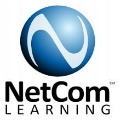About NetCom Learning
Location:
It's hard to imagine a day going by without people passing along large amounts of information. Messages are everywhere, and the number of messages we receive seems to be increasing each day. Whether via phone, email, mass media, or personal interaction,... Read More
With so much communication to contend with, it can be difficult to grab people's attention. But, we are often called upon to do just that. So, how do you grab and maintain an audience's focus when you're asked to present important information? By being clear, organized, and engaging. And, that is exactly what Microsoft Office PowerPoint 2016 can help you do.
Gone are the days of flip charts or drawing on a whiteboard to illustrate your point. Today audiences are tech-savvy, accustomed to high-impact multimedia content, and stretched for time. By learning how to use the vast array of features and functionality contained within PowerPoint 2016, you will gain the ability to organize your content, enhance it with high-impact visuals, and deliver it with a punch. In this course, you will use PowerPoint 2016 to begin creating engaging, dynamic multimedia presentations.
You can also use the course to prepare for the Microsoft Office Specialist (MOS) Certification exam for Microsoft PowerPoint 2016.
Do you represent this school? Suggest edits.
Courses
Developing ASP.NET MVC 5 Web Applications
Developing ASP.NET MVC 5 Web Applications Boot Camp
Developing on AWS
Developing SQL Data Models SQL Server (SQL Server 2017)
Developing SQL Databases (SQL Server 2017)
Developing Windows Azure and Web Services Boot Camp
DevOps Engineering on AWS
Discovering & Mastering the Blockchain
EC-Council CEH: Certified Ethical Hacker v10 & CNDA: Certified Network Defense Architect
EDX11036: Algorithms and Data Structures in C# - DEV204.3x
NetCom Learning Reviews
Average Ratings (All Programs)
Susan Brown
Graduated: 201810/9/2018
"Great overall experience."
Took Azure Fundamentals. The instructor has an outstanding knowledge of the subject and speaks in a clear way.
Do you represent this school? Respond to a review.
Miguel Rodrigues
Graduated: 201810/5/2018
Course
Project Management Professional (PMP)®
"Helpful Instructor"
The instructor was very informative and has a good flow. He had a great working knowledge of the topic.
Anonymous
Cloud Administrator | Graduated: 201810/5/2018
Course
Security Operations on AWS
"Worth your Investment"
Overall excellent experience and excellent instructor. I will strongly recommend to colleagues.
Chris
Network Engineer | Graduated: 201810/5/2018
Course
CCDA v3.0 Prep Boot Camp
"Great course great instructor."
The instructor has a lot of knowledge and presents in a clear and concise manner.
Curtis
Project Manager | Graduated: 201710/5/2018
Course
Project Management Professional (PMP)®
"Project Management Exam Training"
The Instructor was amazing. He went over everything in such a way that was extremely easy to understand. I wish I had him as my instructor back in Jan prior to failing my PMP v5 Exam in March.
Anonymous
Server Administrator | Graduated: 201810/5/2018
Course
20741: Networking with Windows Server 2016 Boot Camp
"Excellent Instructor!"
The instructor is an excellent, brings real world knowledge to course and interacts with students.. great knowledge base and transfer ability.
Geraldine Souza
Graduated: 201810/4/2018
Course
CCNA Data Center Prep Boot Camp v6.0 - CCNADCBC (Associate)
"Will recommend!"
The instructor was great at explaining the content. Makes it easy to follow along.
Anonymous
Solution Architect IT Infrastructure | Graduated: 201810/4/2018
Course
Advanced Architecting on AWS
"Friendly, Educational and Worthy."
Very thorough and always responded questions. Took his time to explain in detail.
Joshua Peter
Infrastructure Automation & Scripting - Developer | Graduated: 201810/4/2018
"Advanced Automated Administration with Microsoft Windows PowerShell."
The instructor was excellent and able to answer fully the questions and address the statements about advanced power-shell matters.






